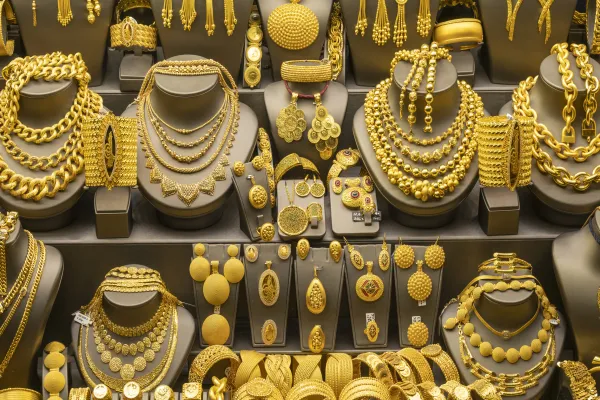Lebanon has been hit hard by the deteriorating security conditions in the countries to its east. As civil war has raged throughout Syria, which shares a 225-mile land border with Lebanon, and the Islamic State of Iraq and Syria has continued its advance toward Baghdad, displacing hundreds of thousands and sending many foreign investors packing, 1.3 million refugees have flooded across the Lebanese border. “That’s equivalent to 30 percent of our population,” notes Riad Salameh, governor of the country’s central bank, Banque du Liban, who spoke to Institutional Investor on the sidelines of the IMF/World Bank annual meetings in Washington, DC.
At the same time, foreign demand for Lebanese goods and services has plummeted, with the export and tourism industries, key motors of the domestic economy, suffering most. And a political crisis, exacerbated by the sectarian divisions at work in the crisis in Iraq and Syria, has left multi-ethnic Lebanon, whose governance has traditionally rested on a delicate politics of consensus between the major Sunni, Shiite, Druze and Maronite groups, with no president. The fourth and most recent attempt to broker an agreement among the ethnic factions to fill the presidency came in August; it failed.
Remarkably, however, the country’s economy has remained intact. Growth, while meagre, is still projected to reach 1.8 percent this year, according to the IMF, before hitting 2.5 percent in 2015. Much of this resilience is down to the creativity of the central bank, which under Salameh’s guidance has adopted a range of novel measures to keep growth moving. “We don’t know how long the war in the region is going to go on for, or what the future map of the Middle East will be,” says Salameh, who has been at the helm of Banque du Liban for 21 years. “These are unusual challenges. But in the meantime, we have to adapt.”
The most innovative of these measures has seen the bank, beyond its traditional function of monitoring inflation and ensuring there is adequate liquidity in the financial sector, take on the role of angel investor. A program initiated late last year has seen the Banque du Liban offer loans to commercial banks at the subsidized rate of 1 percent for investment in start-ups. The central bank guarantees up to 75 percent of the value of the loans, which must be used to invest in early-stage ventures headquartered and operating in Lebanon. A total of $400 million has been earmarked as part of this stimulus package; already Banque du Liban has approved $100 million in loans. It’s an opportunity, Salameh says, to boost internal demand as external demand falters and lay the foundations for Lebanon to establish itself as a regional “knowledge economy,” less dependent on tourism and real estate.
The early signs are that the program is working, with Samir Hanna, general manager at Bank Audi, Lebanon’s largest bank by assets, saying the subsidized loans have seen an increase in private bank lending activity over the last year. They “won’t close the whole output gap, but the loans have given a technical boost and there’s a value-add there for the economy,” he says.
The startup program is part of a broader move to ensure the financial sector’s health in the face of the country’s multiple challenges. Overall bank deposits have already increased 6 percent this year over the comparable point in 2013, and capital inflows, mostly in the form of remittances from the Lebanese diaspora, remain healthy at $11 billion year-to-date, according to Freddie Baz, CFO at Bank Audi. Lebanon is now in the remarkable position, despite regional turmoil and the downturn in several key sectors of the real economy, of having one of the most buoyant banking sectors in the Middle East.
“Interest rates are at ease, there’s no pressure on inflation, foreign exchange reserves at the central bank are ample,” says Baz. “We don’t feel any stress.”
Get more on emering markets.
Follow Aaron Timms on Twitter at @aarontimms.







